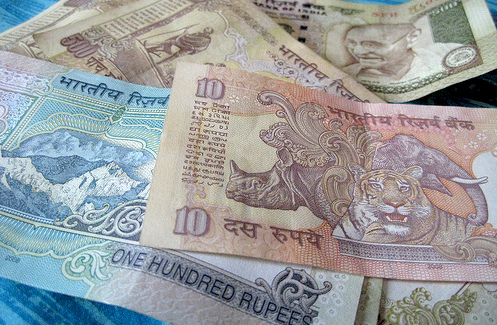The new government is set to present its first Union Budget this week. LSE alumnus Siddharth Ramalingam considers the context and suggests key areas where action should be taken.
Clearly, we aren’t rational beings. When the BJP swept to power in the recent elections, people expected the “acche din” (good days) to begin almost immediately. The stock market went into a tizzy, industry moguls were all gung-ho about what this government could achieve, and economists were waxing eloquent about what the government “must” do to get India back on the path to double digit growth. Everyone acknowledged that tough decisions would have to be made, but no one quite discussed how tough taking decisions really is in this country. One can’t really be certain if even the government knows how to balance the ‘toughness’ the BJP brings to the parliament through sheer numbers, and the exigencies of national politics that will be mired in populism for the foreseeable future.

The ailments of the Indian economy are not new news. The hope this time around is that the government can and will deliver what is required to inject some energy into the economy. Here is a short list of what needs urgent attention:
- Get a handle on inflation: The biggest bugbear for any government is persistently high inflation, especially in food prices. The current government has rightly identified supply side bottlenecks like hoarding and poor storage facilities for inflation. Frankly, the government cannot do anything in the short-term to turn things around, and a poor monsoon will not only push inflation higher, but also make people wonder when those halcyon “acche din” will come.
- Rein in the fiscal deficit: The deficit for the last fiscal year was 4.5 percent of GDP, just a shade below the target of 4.6 percent. For much of the year, it looked like it would be well over the target and it is believed in some circles that the government only managed to get it below 4.5 percent due to some fancy accounting. Just two months in to the current fiscal year the deficit is already close to what it ought to be mid-fiscal. The finance minister has a tricky job on his hands –should the Government borrow more and suck potentially productive capital out of the market? How will the government finance its welfare schemes?
- Make businesses feel good: the manufacturing sector has been anaemic the last several quarters, and the government needs make a strong statement on tax reforms, infrastructure and power sector development. Job creation and skilling is a major concern for the government. Skilling initiatives by past governments have been ineffective, and it remains to be seen if the current government has the foresight and ability to develop a nationwide skilling program.
There is no doubt that the current government has a clear mandate to do what it takes to get the economy on track. That the government has the intention to do good, and the capability of the finance minister is not in doubt. The budget will almost certainly make the right noises, and businesses will be happy. Foreign commentators will praise the finance minister for both the budget and his countenance during delivery.
Where the budget might fail is in its ‘signalling’ to the non-business and non-middleclass electorate, the farmer fighting against the industrialist for his land, or the tribal fighting the mining lobby for her forests. The government’s growth model and policy decisions could well be what is best for these groups, but communicating what is good in a language that is understood and appreciated is probably more important the growth model itself. No one wants another “India Shining” type debacle in a few years’ time.
About the Author
Siddharth Ramalingam is Senior Vice President at IDFC and Director, The Minds Foundation. He completed an MSc in Political Theory at LSE in 2007. The opinions expressed in this post are personal.






